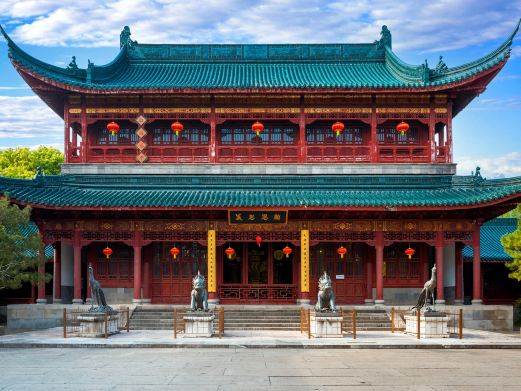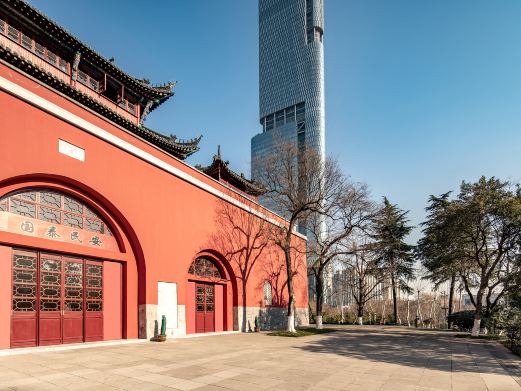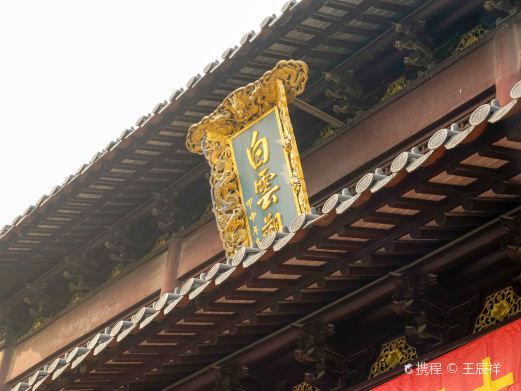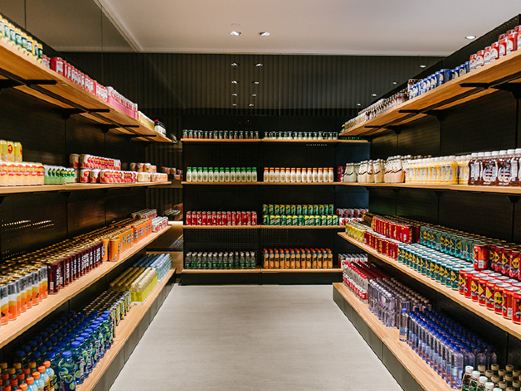Qiantong Ancient Town is located 14 kilometers southwest of Ninghai County, where a cluster of old residences and streets from the Ming and Qing dynasties has been preserved. Known worldwide due to Chen Yifei’s film ‘The Hairdresser’, it is less commercialized than Zhouzhuang and Wuzhen, offering a more pristine scenery, making it perfect for leisurely strolls and photography. Before exploring the ancient town, you may ascend the Lu Mountain in front of the scenic area entrance, a small hill that provides an excellent vantage point for capturing the entire town. The ticket office is not at the entrance of the scenic spot; it’s a few hundred meters away, but you can save effort by taking an electric cart.
The ancient town still retains traditional wooden structures and tile-roofed houses, with some villagers still living within, maintaining a simple and serene environment. The narrow lanes are all paved with pebbles, kept very clean, making it essential to wear comfortable shoes while visiting. A canal encircles the village where you can see women washing clothes and children playing. Walking through the town, on a sunny day, you’ll find many elderly people chatting and basking in the sun, creating a tranquil atmosphere. Unadorned and free from urban noise, the town offers relaxation. The entire town can be toured in about two hours. The main attractions in the town include Zhisi Qi Ju, Mingjing Hall, Folk Museum, Tongshi Ancestral Hall, Qunfeng Zhanhu, and the filming location of ‘The Hairdresser’. You can visit Zhisi Qi Ju to see a typical Taizhou-style courtyard house, which was the predecessor of Qiantong Primary School. Explore the Folk Museum to see the living and agricultural tools, as well as folk handicrafts used by the villagers. The main draw is the filming location of ‘The Hairdresser’, where Chen Yifei primarily shot the movie; you can also watch ‘The Hairdresser’ at the adjacent Yifei Cinema to reminisce about the scenes. Follow the signs to leisurely visit each attraction. If you get tired, don’t miss the local delicacies in the town. Many locals set up stalls on the roadside where you can taste ‘Qiantong Sanbao’ (Tong Tofu, Qiantong Dried Tofu, and Qiantong Hollow Bean Curd), which are exceptionally delicious. Additionally, soup dumplings, wheat paste, wheat pancakes, and glutinous rice cakes have their unique flavors and are reasonably priced. If you truly appreciate the charm of ancient towns and have ample time, you can choose to stay in one of the small family inns run by locals, with prices ranging from 30 to 120 yuan. You can also taste the homemade wine brewed by the locals. However, please note that there is a curfew for the inns, and the locals go to bed early, so try not to return late.Opening hours: Open all year round from 08:00 to 16:30. Preferential policies: Children: Free for those under 1.2 meters (excluding 1.2 meters) in height; Concessionary tickets for those between 1.2 meters (including 1.2 meters) and 1.5 meters (excluding 1.5 meters) in height. Elderly: Free for those aged 70 and above with valid certificates. Disabled people: Free with valid certificates. Soldiers: Free with valid certificates. Supplementary note: The above information is for reference only. The specific information shall be subject to the disclosure on the day of Qiantong Ancient Town.









